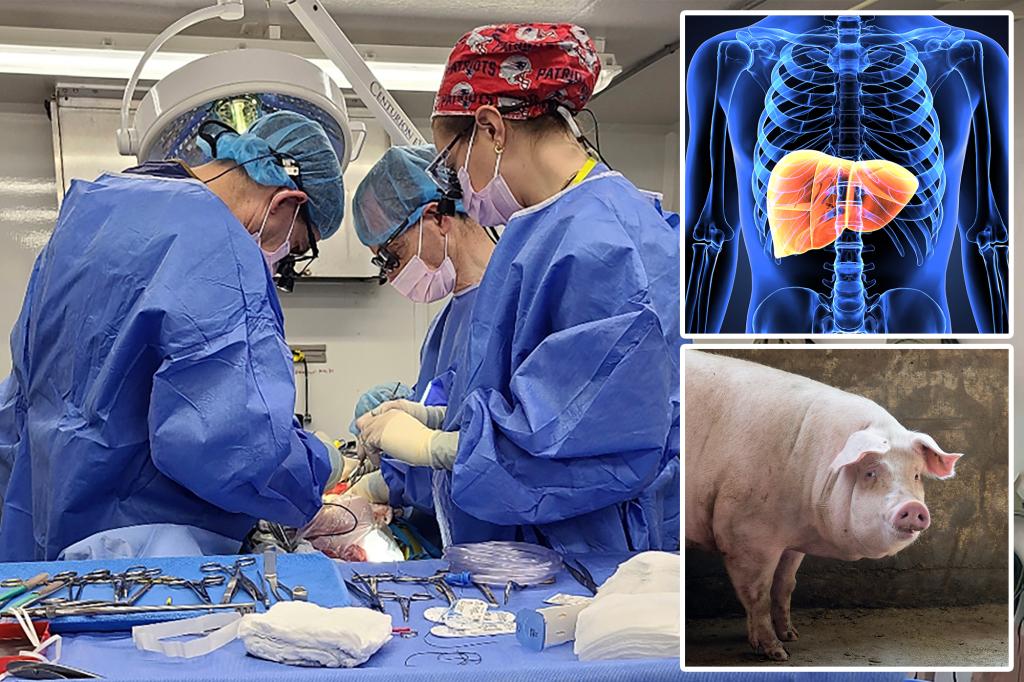Surgeons externally attached a pig’s liver to a brain-dead human body and watched it successfully filter blood, a step toward eventually trying the technique on patients with liver failure.
The University of Pennsylvania announced a novel experiment on Thursday, a different spin on transplanting animal organs into humans.
In this case, the pig’s liver was used outside the donated body, not inside — a way to create a “bridge” to support the damaged liver by doing the work of cleaning the organ’s blood externally, similar to dialysis for a failing kidney.
Animal-to-human transplants, called xenotransplants, have failed for decades because the human immune system rejects the foreign tissue.
Now scientists are trying again with pigs whose organs have been genetically modified to be more human-like.
In recent years, kidneys from genetically modified pigs have been temporarily transplanted into brain-dead donors to see how well they work, and two men received heart transplants from pigs even though both died within months.
A genetically modified pig liver is removed in Massachusetts for transport to the University of Pennsylvania in Philadelphia in December 2023. AP
The US Food and Drug Administration is considering whether to allow a small number of Americans in need of new organs to volunteer for careful study of either pig hearts or kidneys.
Some researchers are also looking into using pig liver.
The liver has a different complexity than the kidneys and heart: It filters blood, removes waste products and produces substances needed for other body functions.
Kidneys from genetically modified pigs have been temporarily transplanted into brain-dead donors to see how well they work. agnormark – stock.adobe.com
About 10,000 people are currently on the US waiting list for a liver transplant.
In the Penn experiment, researchers attached a liver from a pig – genetically modified by eGenesis – to a device made by OrganOx that normally helps preserve donated human livers before transplantation.
The family of the deceased, whose organs were not suitable for donation, offered the body for research.
The US Food and Drug Administration will decide to allow a small number of Americans in need of organs to volunteer for studies of either pig hearts or kidneys. PIC4U – stock.adobe.com
The machine maintains the blood circulation of the body.
The experiment, conducted last month, filtered blood through a pig liver device for 72 hours.
In a statement, the Penn team reported that the donor’s body remained stable and the pig’s liver showed no signs of damage.
There have been many efforts to develop machines like liver dialysis, and experiments using pig livers were tried years ago — before today’s more advanced genetic techniques, said Dr. Parsia Vagefi of UT Southwestern Medical Center, who was not involved in the new experiment but is watching xenotransplantation research closely.
“I applaud them for pushing this forward,” Vagefi said, calling this combination of pig-device approaches an exciting step in the quest toward better care for liver failure.
Categories: Trending
Source: thtrangdai.edu.vn/en/



